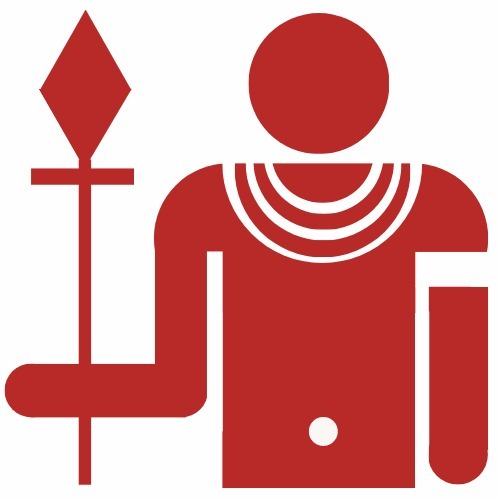Over the past few years Kenya and Nigeria have risen through the ranks in the technology space, booting South Africa out of its previously held.
Innovations like Safaricom’s M-Pesa and Kenya’s Ushahidi and Nigeria’s fin-tech startup Interswitch, which is a few zeros away from unicorn status, have investors tripping over themselves to get to these countries.
The innovation-friendly legislature contributed greatly to the success of the ICT sectors in both countries. This said, the competition between the two countries is undeniable. Both are competing for the same investment opportunities.
However, in the recent past, Kenya, has for some reason or other, been receiving the shorter end of the stick. Big names like Google and Facebook have passed the country over when selecting places to place their innovation hubs, in favor of Nigeria. This begs the question, why was Kenya second choice?
“Over the last couple of years, Nigeria has been coming up and has now overtaken us. I love all things Kenyan but having interacted with some of our clan mates from the Nigerian tech community,” explains Frank Tamre, co-founder Early Camp.
Tamre adds that Nigerians seems to be more serious than Kenyans in terms of determination due to limited chances in the big competitive market.
“They have an advantage of market economics, he says. “A start-Up in Nigeria VS Kenyan each with one percent of the population as size of market are two very different numbers, the percentage number of serious developers in Nigeria VS Kenya is distinct. If they have a 4 Million developer pool, we have a 400k it would mean that for a 1% of each to get the serious developers, theirs amounts to really huge figures. How do we compete: Be more serious and focused. We can do it if we decide to be focused as Kenyans. Of course comparison is a game of fools, but learning from your neighbor is wisdom. If we do not realize how fast they are progressing, we only need to see how many tech MNC are setting up shop in Nigeria and how many Nigerian Start-ups are deciding to take on ‘global’ companies. Their mentality is different. Nigeria is becoming the Silicon Savannah hub of Africa.” he concludes.
This is a view shared by another tech entrepreneur. Bitsoko COO, Frank Deya is of the opinion that most of the newer industry players are in it for the hype and the pomp not for business.
“Most Kenyan tech startups are obsessed with replicating Silicon Valley, which unfortunately is not what we need here,” he says. “We ride high on publicity, soliciting investments with no tangible outcomes to show; coming up with cool concepts and apps that generate little to no value whatsoever on the ground. We need more manufacturing plants than we need social networking sites. Our transport industry is in shambles, as evidenced by the mad December rush. Why is there no reliable ticket booking or reservation platform to manage all that chaos?”
To him, entrepreneurship is a noble feat few people are able to master and excel in, but is not the solution to unemployment. Deya says there is need to build capacity locally by revamping the Kenyan education sector, strengthening public institutions to continue elevating Kenya’s status as a formidable market that has attracted and opened the country up to the outside world and contributed to a culture of innovation.
Back in 2016, Kirsten Buch of Nigerian startup accelerator, 88MpH says, (as quoted from a 2014 article by Odunayo Eweniyi) “The plan was to always cover Africa and you can’t really say you’ve got African coverage, if you’re not in Nigeria… Kenya has been destroyed by the impact of NGO funding. On the media side, it’s been well exposed and there’s a lot on the surface. Real substance, companies that are successful? There’s not a lot.
The Kenyan business community have also become discouraged by that. ”The bigger, serious investors lean more towards Nigeria. It’s mostly about market size. You can scale something down here.” A scathing remark if you look at it from the vantage point of a Kenyan techpreneur. But perhaps he makes a good point. Kenyan techpeneurs will have to go back to the drawing board.
However, it’s not all gloom and doom for the East African country, which has in all honesty produced some noteworthy names. Some of these are Cellulant, which is a mobile commerce company based out of Nairobi, that is operating a payments ecosystem that connects financial sector customers, Mobile Network Operators and businesses to their increasingly mobile consumers. Their main aim is to deliver the most connected payment platform for Africa. The company received a nod of approval from Jack Ma’s Alibaba, when it was one of the 24 startups invited to participate in the e-commerce training for African approval.
Still in the fintech space, JamboPay, founded and run by Danson Muchemi, has north of 1,500 institutional clients, processing more than $50 million in payments every year. The company is actively present in Kenya, Tanzania and Senegal and is rapidly expanding to other African countries. It’s competitor, PesaPal has turned down several acquisition offers from the Direct Pay Group which is rapidly expanding across Africa and preparing for its IPO by 2019. In payments alone, Kenya has formidable firms serving hundreds of clients across Africa with little or no press. Nigeria is getting the attention of Google and Facebook because of its population. Once Facebook signs up the critical number of Facebook users and SMEs, it will of course turn to another market. It’s business as usual for multinational companies. They are here for business.
In Kenya, most accelerators turned into co-working spaces and moved away from the community grouping to make money and stay afloat. iHub which was the poster child of Kenya’s tech ecosystem was sold to a European investor. All its assets including m:lab and iHub Research, iHub Consulting among others and debts were transferred to the investor. iHub is now fully a co-working space. Nailab only works with select partners to run accelerator programmes. Nairobi Garage which was the earliest serious accelerator has now mastered the co-working business launching its second hub last year. These are signs of growth, as entrepreneurs can now pay for their own internet and offices in the CBD or in Westlands where there customers are.
To other markets, deep sense of community, influx of VC funding, press coverage and accelerators mean growth in business, not to entrepreneurs in Kenya.


